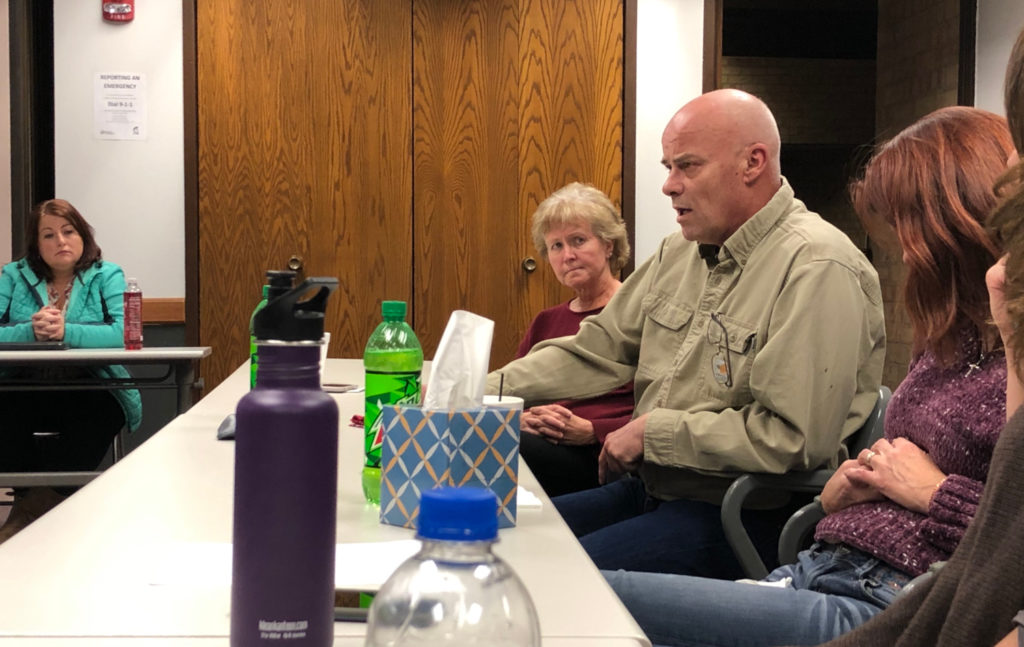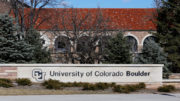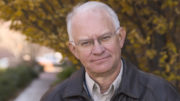By Jeffrey A. Roberts
CFOIC Executive Director
A split screen might be the best way to think about government transparency in Colorado in 2019.
On one side is the ground-breaking new state law that opens records on completed police internal affairs investigations. On the other is the trend among law enforcement agencies in our state to encrypt 100 percent of their scanner transmissions.
While House Bill 19-1119 helped penetrate Colorado’s “blue wall” of silence, forcing police to be more transparent about how they police themselves, the radio silence is stifling accountability and making it harder for journalists to keep the public informed about what’s happening in their communities.
“The police are public servants and what they do is in the public interest,” testified Matt Sebastian, a senior editor at The Denver Post, during a legislative hearing in April. “And they’re taxpayer-funded. One of the greatest ways we can understand how they operate and what they’re doing is by hearing those operations in real time.”
Sebastian spoke in favor of an unsuccessful bill that would have allowed the public to monitor all but tactical and investigative channels. At the time, about 30 Colorado law enforcement agencies were concealing their radio communications, but the number keeps growing with Denver police and several more agencies now encrypting or intending to do so by year’s end. The change is necessary, they say, to keep criminals from listening in and to prevent the broadcasting of someone’s personal information.

Some jurisdictions have offered encrypted scanners to the news media. But reporters still can’t monitor Denver scanners because the city insists on a purchasing agreement with two provisions deemed unacceptable by news organizations – one letting city officials examine newsroom records related to the scanner and another indemnifying the city if there is a lawsuit related to information from a police radio.
“Their insistence on encrypting scanner traffic should … raise important questions about the department’s commitment to transparency,” said Post Editor Lee Ann Colacioppo. “Police activities filtered through the eyes of the public relations team will never provide the public with an understanding of how police in this city operate when no one is watching.”
The new law on internal affairs investigations, meanwhile, gives journalists and the public access to records that most law enforcement agencies in Colorado routinely withheld in the past. It should help build trust between police and the communities they serve, said Sen. Mike Foote, a Lafayette Democrat who sponsored the legislation, “and if there’s an internal investigation that shows the complaint was meritless, then the community gets to know that.”
Here are some other transparency highlights and lowlights from 2019, all featured on the blog or news feed of the Colorado Freedom of Information Coalition:
Anti-SLAPP law. Colorado joined about 30 other states that provide a process for the expedited dismissal of strategic lawsuits against public participation, known as SLAPP suits. These often long and costly civil actions have been brought against people, including journalists, to harass them for exercising their First Amendment rights of free speech or freedom to petition the government.
Among those testifying in favor of House Bill 19-1324 was Pete Kolbenschlag, a Paonia environmental activist who was sued for defamation by SG Interests, a Texas-based oil and gas company. In June, the Colorado Court of Appeals affirmed a lower court’s dismissal of the lawsuit on the grounds that Kolbenschlag’s online comments about SG Interests were “substantially true.” The court also said Kolbenschlag is entitled to attorney fees.
Sole finalist lawsuits. Separate legal actions brought against the University of Colorado regents and a Colorado Springs school board challenge the naming of just one finalist for a government chief executive position.
The Boulder Daily Camera’s lawsuit seeks to compel CU to comply with the newspaper’s request for the names and applications of other finalists considered during the process that led to the hiring of Mark Kennedy as university president. A similar suit brought by parent Melanie Knapp contends that Academy District 20 wrongfully withheld the names and applications of superintendent finalists.
The Colorado Open Meetings Law requires public bodies to make public “the list of all finalists” under consideration for a chief executive officer position at least 14 days before an appointment is made. The Colorado Open Records Act (CORA) requires the disclosure of finalists’ applications and defines “finalist” to mean “a member of the final group of applicants.”
Email records retention. A CFOIC research paper sparked several Denver Post stories about the quick purging of state employee emails – a practice that eliminates public access to government records that otherwise would be subject to CORA.
“Open records laws cannot serve their purpose if requested records no longer exist,” began CFOIC’s report, which recommends that Colorado’s retention law and policies be clarified or at least better enforced.
The Post reported that many state employees’ inboxes are wiped out regularly. The newspaper also confirmed that many state lawmakers and other public officials use private-messaging apps such as Signal and Confide. “What does that mean for government’s obligations under the state’s transparency laws?” CFOIC asked.
No cameras. Facing a lawsuit alleging Sunshine Law violations, members of the Strasburg Fire Board voted to ban photographs, video recording and audio recording during their public meetings. Moments later, they called 911 on Brad Jones, whose group filed the legal action, for keeping his camera rolling.
“The district can and will press charges against you, is that clear?” the board’s legal counsel told Jones. The fire district eventually softened the policy, allowing video recording of meetings from a kitchen near the board table.
DIA leak. Denver’s city attorney launched an internal investigation, trying to find out who may have told CBS4’s Brian Maass and other reporters that the city was terminating Great Hall Partners’ contract to redevelop the terminal at Denver International Airport. “Our job is to follow up on the apparent release of non-public information that presents a legal risk to the city or its employees,” City Attorney Kristin Bronson said.
But CFOIC and others questioned whether the investigation would intimidate Denver employees and make it less likely journalists would learn details about city problems like those plaguing the multi-million-dollar renovation project.

Rangely silence. The Colorado Independent and the Rio Blanco Herald Times joined forces to tell the tragic story of Daniel Pierce, a 58-year-old man with untreated paranoid schizophrenia who stole a pickup truck and was shot to death by police lieutenant Roy Kinney in Rangley, a town of 2,300 in northwest Colorado.
Town officials tried to keep it all quiet, issuing no public statements, ignoring questions from the Herald Times and releasing only a heavily redacted version of the internal affairs investigation report. Nevertheless, the reporters uncovered what happened and later brought Kinney and Pierce’s widow together during an emotional community meeting.
STEM school shooting. After two students attacked STEM School Highlands Ranch in May, and a security guard was found to have accidentally shot and wounded a student, school officials declined to answer questions about whether it had asked a security company for unarmed guards.
But records obtained under CORA by The Colorado Sun revealed what the officials wouldn’t discuss: The school indeed had requested an unarmed guard. Though he has been credited with stopping one of the accused shooters, the private security guard on duty that day wasn’t supposed to have a gun.
Body cameras. The footage from body-worn cameras can help both police and the public understand what really happened when officers are accused of misconduct or policy violations. But the disclosure of body-cam video continued to be inconsistent among law enforcement agencies in Colorado.
Under pressure from community members, Colorado Springs police quickly released footage of the fatal shooting of De’Von Bailey in August. Aurora police released portions of footage from two officer-involved shootings in the fall, but the department waited three months before making available video of the August in-custody death of Elijah McClain.
Some district attorneys are relying on more than the Colorado Criminal Justice Records Act to determine whether and when body camera video should be disclosed to the public – they’re citing the Colorado Rules of Professional Conduct as a reason to restrict access during active investigations. But CFOIC president Steve Zansberg said the rules forbid only the making of certain “extrajudicial statements,” not the release of public records under freedom-of-information laws.
Secret report. The Gazette in Colorado Springs learned that a retired FBI agent had been paid nearly $40,000 to review the 2013 murder of Colorado Department of Corrections director Tom Clements, but the report never was made public.
DOC denied an open records request for the document, but investigative reporter Chris Osher obtained a draft copy another way. It revealed that law enforcement officials failed to look at crucial evidence during their investigation of the killing.
Pro se win. Kristin Bjornsen represented herself, going to court without a lawyer, in an open-government lawsuit against Boulder County. She lost at the district court level, but the Colorado Court of Appeals overturned key aspects of the ruling, deciding that county commissioners violated the Colorado Open Meetings Law with their practice of convening “emergency” executive sessions and then notifying the public retroactively.
The appellate court also determined that Bjornsen was entitled to draft emails the county had improperly withheld under CORA’s work product exclusion. In September, she was presented with CFOIC’s Ruth Anna Citizen Champion Award.
Handcuffing settlement. The city of Denver settled with Colorado Independent Editor Susan Greene, who was handcuffed and detained by Denver police officers in 2018 while taking pictures with her smartphone near the state Capitol.
Greene received a check for $50,000 and Denver agreed to hire Mickey Osterreicher, general counsel for the National Press Photographers, to train officers on the First Amendment right to record police activity in public. Two officers were found to have violated city policy and fined two days of pay.
Follow the Colorado Freedom of Information Coalition on Twitter @CoFOIC. Like CFOIC’s Facebook page. Do you appreciate the information and resources provided by CFOIC? Please consider making a tax-deductible donation.




